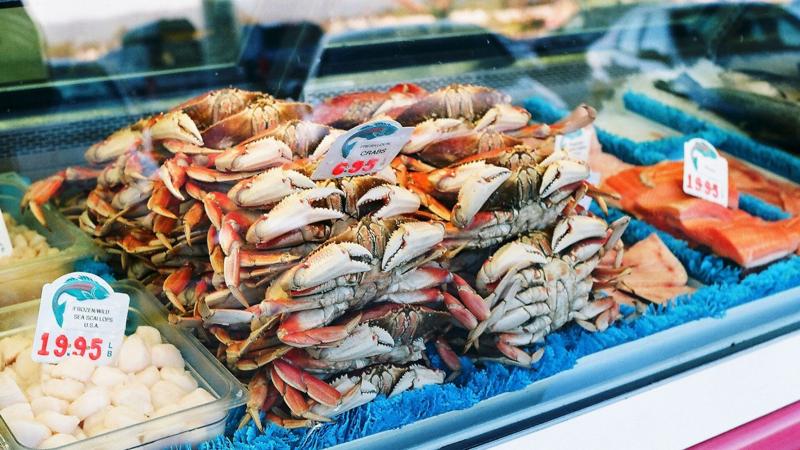On Wednesday, Russia was accused of subsidizing their seafood industry and exporting farm-raised, mislabeled salmon – an accusation levied by other seafood producers against countries such as India, Vietnam, and China.
The accusation came at Wednesday’s meeting of the U.S. House Natural Resources Committee’s Subcommittee on Water, Wildlife and Fisheries.
The meeting was held in response to an executive order issued in April by President Donald Trump titled Restoring America’s Seafood Competitiveness.
“In the case of Russia, for instance, not only are they flooding global markets with hatchery-produced salmon, it is also often mislabeled,” Jamie O’Connor, deputy executive director of the Alaska Marine Conservation Council, told the committee. “And so we are operating in the best faith that we can as small businesses to compete in a vast global market. And we need your help to do that.”
In 2015, Oceana found that 43% of the salmon samples it tested were mislabeled as wild-caught.
Larson Hunter, Chairman of the Alaska Coastal Villages Region Fund, also worried about Russia’s trade practices.
“They play by different rules than we do. We’re heavily, heavily regulated,” he said.
O’Connor’s comments echo the frustrations of many in the American seafood industry – and beyond.
Over 90% of the shrimp consumed in the U.S. today is imported – largely from shrimp farms in India, Vietnam, Indonesia and Ecuador. Much of these imports go unrecognized because they are labeled incorrectly as domestic or otherwise wild-caught.
These countries have built massive aquaculture industries with the support of their governments and international financial institutions like the World Bank. Domestic production, meanwhile, has nearly halved since 2002.
“Our lawyers have found that shrimp farming companies overseas are receiving hundreds of millions of dollars in subsidies from their governments,” said David Chauvin, founder of David Chauvin’s Seafood Company in Louisiana. “We don’t get any of that.”
Russia has openly stated they are subsidizing their agricultural industries.
“Subsidies will be available for investors financing long-term agricultural projects, such as the construction of food storage facilities, selection and seed-breeding centers, and many other facilities,” Russian Prime Minister Mikhail Mishustin said in March. “The 2025 budget stipulates 8 billion rubles for these purposes.”
Eight billion rubles is equivalent to roughly $100 million.
“From now on, entrepreneurs who are ready to invest in aquaculture salmon fish farming enterprises will be able to obtain this support,” Mishustin said.
U.S. agriculture producers in general have raised concerns about subsidies from foreign industries making it difficult to compete.
In 2020, Florida and Georgia farmers testified on a surge in subsidized produce imports from Mexico, which they say is driving American growers out of business.
Growers testified that unfair trade practices — particularly during overlapping growing seasons — are severely undercutting U.S. prices and threatening the future of domestic fruit and vegetable production. Other witnesses refuted their accusations.
The problem of state funded subsidies and the effects on global markets is not isolated to the agriculture. China’s steel industry, for instance, is heavily subsidized by the Chinese government.
“Chinese policies and subsidies for their domestic steel and aluminum industries means high-quality U.S. products are undercut by artificially low-priced Chinese alternatives,” the Biden administration wrote in April 2024.






